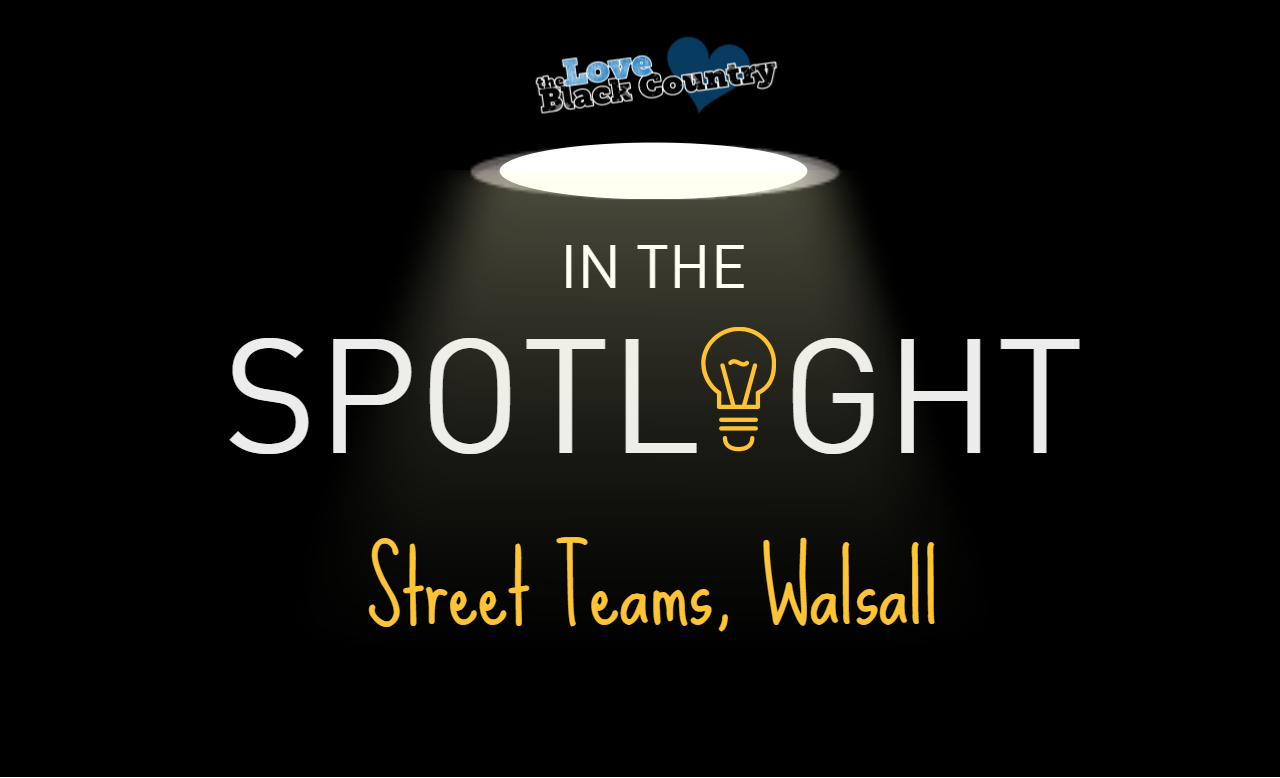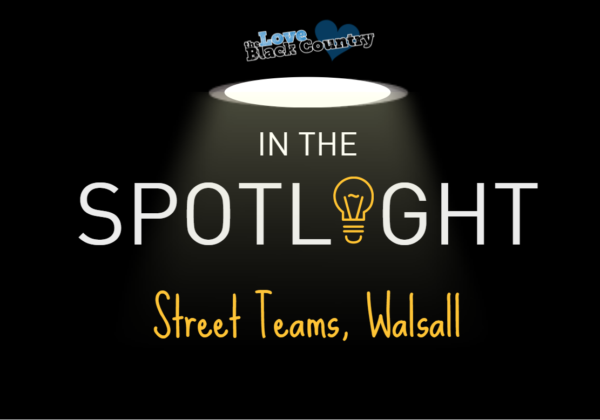
Rescuing Childhood
STREET TEAMS – WALSALL
RESCUING CHILDHOOD
The images of half-naked women dancing obediently around the rapper’s towering frame fill the screen. The lyrics of the song blare out from the iPad’s speakers, spewing its melodic instructions: Control your woman. Make her submit. Don’t take no for an answer. And the young lad watching takes it all in. The more he watches, the less it shocks him and the more he wants to try it for himself.
The same images fill another screen, a few miles away. The same lyrics blare out from the young girl’s mobile phone as she listens and watches and the boundaries in her heart and mind become increasingly muddled and confused. ‘Is this what boys want?’ ‘Is this what I’m supposed to do?’
“These are some of the kinds of young people that Street Teams works with.”
It’s a sunny Thursday morning and I’m sat in the Bradford Street Centre in the middle of Walsall, feeling my jaw drop further and further into my chest as I listen to Helen Matthews, Street Team’s Head of Service, explain to me the incredible work they do.
To say I’m surprised is an understatement. When it was suggested I meet with Helen at the Street Teams base a few weeks ago, I was preparing myself for a relatively easy story to write. I was fully expecting to meet a group of street pastors or detached youth workers who helped litter-pick the town centre and work with teenagers who’ve had a bit too much to drink on a Friday night.
The reality is starkly different.
“Street Teams began twenty years ago as a youth organisation linked to Walsall Community Church,” Helen explained. “Working in the Red Light District, we used to visit the area two nights each week, offering hot chocolate and prayer to the sex workers. The more we worked with these women, the more we realised that many of them weren’t women at all – they were children.”
Helen goes on to explain that many of the older women had been coerced into the sex industry as children and as a consequence, Street Teams began to concentrate its activities on supporting children and young people at risk of, and affected by sexual exploitation, offering them safe houses, taking them on holidays, supporting them with medical examinations and educating them about sexual exploitation.
I sit back in my seat and begin to fill in the mental blanks about this nationally recognised charity, which has received funding from Children in Need and Comic Relief and which, until a few minutes ago, I knew nothing about. So it’s a charity that works with prostitutes, I think to myself.Interesting. It’ll make a good article.
And just as I begin to mentally craft my opening line, Helen interrupts my thought cloud with a statement that stops me in my tracks.
“Our work has changed a lot since then. Ease of access to pornographic materials and even just the content of average music videos means we battle daily with issues of desensitisation in young people. We work with children as young as eight years-old who have addictions to pornography.”
I stop writing in my notebook and stare at her. Did I hear her correctly? In what world can an eight-year old have access to so much pornography that he can become addicted before he can even spell the word?
“He wasn’t from a bad home. His mother was trying to teach him what a paedophile was to keep him safe. He decided to google it and his internet search led him to websites crammed with pornography.”
This is the world our young people live in. In an era where it’s easy to think that young people are more empowered than they have ever been, the reality is starkly different. The media they consume and the amount of time they spend online makes them massively vulnerable to having their own sexual understanding and expectations warped, long before they’re legally old enough to consent to anything. Sexual content is simply a click away and it is moulding their views on what is normal and acceptable when it comes to sexual activity.
Consequently, exposure to this kind of material makes Child Sexual Exploitation (CSE) far more widespread than we may think. It isn’t a definition that is limited to the tragedy of sexual trafficking or out and out child prostitution. According to the NSPCC, CSE is a type of sexual abuse in which children are sexually exploited for money, power or status. Children or young people may be tricked into believing they’re in a loving, consensual relationship and should therefore perform the sexual acts their ‘boyfriend/girlfriend’ is demanding of them. They might be invited to parties and given drugs and alcohol. They may also be groomed online. Some children and young people are trafficked into or within the UK for the purpose of sexual exploitation. Sexual exploitation can also happen to young people in gangs. Abusers have become more sophisticated at hiding what they do and young people are becoming more desensitised to what is normal and what is not. This makes sexual exploitation so much harder to stop.
National statistics on this issue are extremely vague and modest due to the sensitive and hidden nature of the CSE. However, one NSPCC survey found that 1 in 20 11-17 year olds have experienced contact sexual abuse. This could come in the form of being groomed and sexting, as well as being emotionally manipulated into performing sexual acts in exchange for attention and ‘love’.
Crucial Role
The more Helen talks, the more I begin to understand the crucial role Street Teams plays educating our community in the Black Country about how to identify when child sexual exploitation is taking place.
“We run workshops for taxi drivers, hotel staff, park rangers as well as teachers and social workers in order to help them identify the signs of young people who may be at risk of CSE.”
This kind of education is particularly important in schools, where many young people are far less aware of what sexual exploitation actually means. After all, many of the women they see in the media are subjected to highly misogynistic attitudes and appear to enjoy and ‘consent’ to it. Street Teams recently piloted a project called “Exposure”, aimed at exposing young people’s views of the opposite sex in order to tackle the growing youth culture that is built on pornographic desires.
“This project has been highly successful. The young people we’ve worked with have been brutally honest with us about what they think is expected of them sexually and their confessions have been staggering. We’re working with a generation of young people whose views of the opposite sex are not only highly unrealistic but extremely worrying. After completing the Exposure lessons however, many have openly deleted pornographic content from their mobile phones there and then, as a result of being educated about how damaging it can be.”
This is the heart of what Street Teams does. As well as working with teenage runaways (who are at a greater risk of associating with gang members, becoming victims of gang activity, including sexual exploitation and grooming) and actual victims of CSE, much of their work focuses on educating young people about what consent really means. This is a crucial part of helping them understand how exposure to pornography distorts what they consider to be normal and acceptable sexual behaviour.
“If we don’t do this kind of training, many young people can find themselves being pressured into doing things they don’t want to do without being to articulate why it’s wrong,” explains Helen.
Nicola’s Story
One such young girl who found herself in this position was Nicola. Referred to Street Teams due to concerns that she was at “high risk” of sexual exploitation through her use of alcohol, unknown whereabouts during the early hours and non-attendance at school, it was believed that Nicola was having sex with boys her age, but had no boyfriend. There were concerns about her safety and sexual health. The Street Teams staff were able to talk with Nicola and discovered that she was mixing with other “high risk” girls and was being groomed by them. Nicola disclosed times where her friend had encouraged her to drink alcohol and get into cars with older men. Nicola talked about these men touching her in ways she didn’t want them to and was scared. She admitted to using drugs, self-harming, attempting suicide and suffering with severe depression.
Street Teams worked alongside education, social care, housing and drug agencies to build an effective support package for Nicola. A new training provider was engaged, supported accommodation secured, the drug and alcohol concerns were addressed and Street Teams allowed Nicola to talk freely and at her own pace about her experiences. Through Street Teams intervention her risk of CSE reduced as her awareness grew. Nicola has moved away from the unhealthy relationships through increased self-esteem and confidence. Street Teams continued to support Nicola through disclosure to police and the investigations are continuing.
Nicola’s story is proof that when the Body of Christ reach out and offer hope, real change can come about in a young person’s life.
Frontline Mission
The work Street Teams do is incredibly difficult but so crucial. They work at the frontline of Christian mission, sowing truth into young people’s lives about their real value and worth. To take the light of Jesus into the incredibly dark corners of our society isn’t an easy job but the Lord has strategically placed Helen and her team so that they’re able to reach out and offer hope and support to some of society’s most vulnerable young people.
Please pray for the continued work of Street Teams. They face daily battles not only with flesh and blood but genuine principalities and powers that are robbing young lives. Every child deserves a childhood. Pray that the Lord continues to use the incredible Street Teams staff to release many more young people from sexual bondage and open their eyes to a future filled with hope, purpose and true value.
For more information about Street Teams, please visit www.street-teams.org or email helen.matthews@street-teams.org.
On behalf of Love Black Country.
Related posts
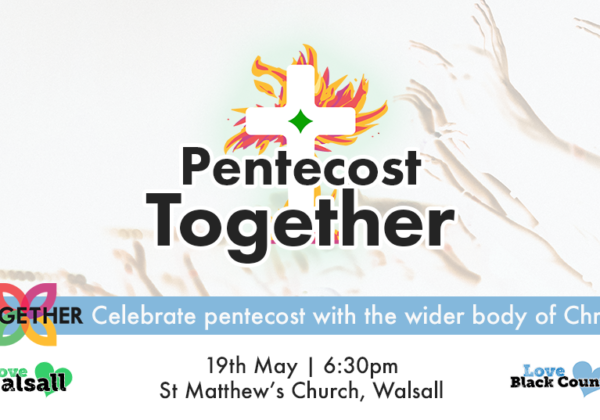 Together Pentecost Service - Christians from across Walsall are joining together on Sunday 28th May at 6:30pm in St Matthew's Church to celebrate Pentecost.
Together Pentecost Service - Christians from across Walsall are joining together on Sunday 28th May at 6:30pm in St Matthew's Church to celebrate Pentecost.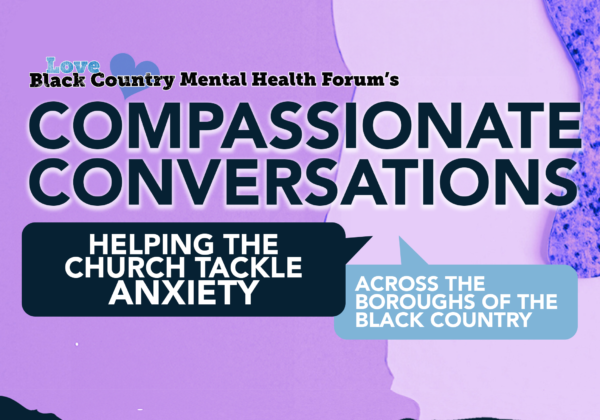 COMPASSIONATE CONVERSATIONS, a session from The Black Country Mental Health Forum’s - The Black Country Mental Health Forum, who brought us together last November for the Sanctuary Conference, are taking information on anxiety and mental health out to the boroughs of the Black Country. Compassionate Conversations – Helping The Church Tackle Anxiety is a chance for Christians to explore how we can support people living or suffering […]
COMPASSIONATE CONVERSATIONS, a session from The Black Country Mental Health Forum’s - The Black Country Mental Health Forum, who brought us together last November for the Sanctuary Conference, are taking information on anxiety and mental health out to the boroughs of the Black Country. Compassionate Conversations – Helping The Church Tackle Anxiety is a chance for Christians to explore how we can support people living or suffering […]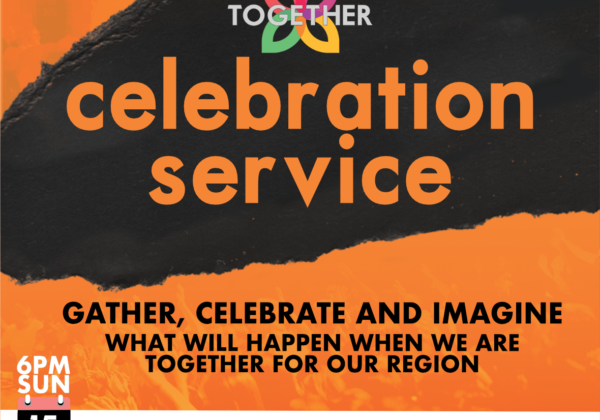 Together Celebration Service – 15.10.23 - On Sunday 15th October, we are gathering Christians from across the Black Country to celebrate and worship God together and be inspired for the future.
Together Celebration Service – 15.10.23 - On Sunday 15th October, we are gathering Christians from across the Black Country to celebrate and worship God together and be inspired for the future.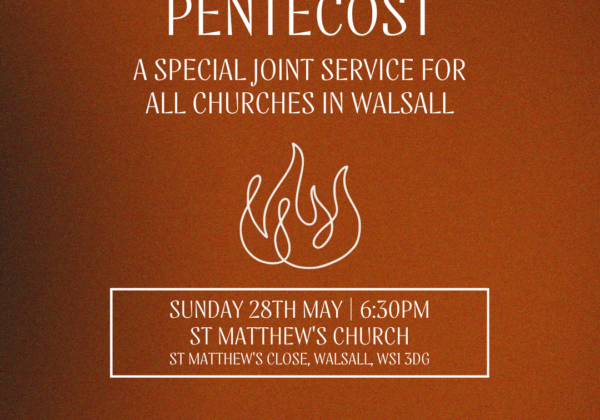 Joint Walsall Pentecost Service - Christians from across Walsall are joining together on Sunday 28th May at 6:30pm in St Matthew's Church to celebrate Pentecost.
Joint Walsall Pentecost Service - Christians from across Walsall are joining together on Sunday 28th May at 6:30pm in St Matthew's Church to celebrate Pentecost.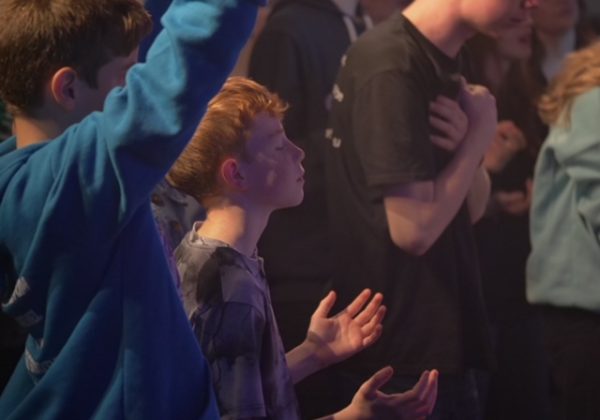 200+ young people cry out to Jesus - Falling on their knees: 200+ young people joined together on Friday night for... a prayer meeting!
200+ young people cry out to Jesus - Falling on their knees: 200+ young people joined together on Friday night for... a prayer meeting!
